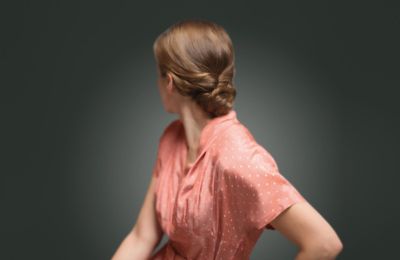Posmysz, Zofia

Ten sam doktor M. [The same Doktor M.] (1981)
In Auschwitz I met people of which I can without a doubt say that they were saints. In my opinion this is the sole theme of value on which I can still write.[3]
The moral imperative in the literary works by Zofia Posmysz, bearing testimony, often consists of her memories of the people who offered her help and support in the camps. In the title story “The same Doktor M.” of the work, which consists of three tales, the author portrays one of her fellow prisoners, Janusz Mąkowski, who was a doctor in the camp hospital where Zofia Posmysz was taken during a typhus epidemic. She only survived thanks to her stay in the hospital.
Chrystus oświęcimski [The Christ of Auschwitz] (2011)
We sat bent over the book, heads together, in defiance of the rules that were inconceivable in this place, which only appeared in the memory of another world. We did not say a word to one another, the presence of the Kapo Berta kept us on the alert. Two swift looks at the teacher revealed a face with strict, imposing features, deeply bedded, alert, but also with loving eyes. And also, the number on her striped clothing: 329.[4]
In the camp Tadeusz Paolone taught Zofia Posmysz how to keep the books. This led to a close friendship between the two. After three days he gave her a small medal of Christ engraved with the year 1943. It had been secretly made by prisoners in the Auschwitz workshop.
Tadeusz Paolone was a captain in the Polish army who was shot in October 1943 following a plot in the camp. To this day the medal has been zealously guarded by Zofia Posmysz, first in a shoe in the camp, amongst closely folded locks of hair or, when inspections were particularly strict, even in her mouth.
The story was published by the International Young People’s Meeting House in Oświęcim/Auschwitz in Polish and German, where Zofia Posmysz is a regular guest, leads workshops and meets up with young people here.
Do wolności, do śmierci, do życia [Freedom, Death and Life] (1996)
At the start we went on foot from Germany to Pozen. First I climbed into a train. Our group was gradually scattered. I arrived in Kraków via Katowice. Needless to say they were goods trains. My parents had a house in Prokocim. At night I climbed out of the train at the station in Bieżanów [on the edge of Kraków]. From there I followed the railway tracks. It was night and I was alone. Fear was my predominant emotion. When I arrived, a light was shining in the house, my mother was not yet asleep. I encountered her sitting on a stool in front of the fire. She was baking potato fritters on a baking tray, the poor woman. There was no fat. Mother looked at me in disbelief and said: “How you have grown”. My younger brother began to cry. An 18-year-old boy who was crying. I’ve never forgotten that.[5]
The book “Freedom, Death and Life” completes her memories of the war. It takes up a rare theme– regaining freedom, returning home and taking up a new life. Zofia Posmysz spent the last weeks of the war in the camp at Neustadt-Glewe. The German guards abandoned the camp before the arrival of the American army on 2 May 1945. In this very realistic, autobiographical story, Zofia Posmysz concentrates on the dramatic experiences of a group of prisoners who decide to return home by foot on a long, dangerous march.
Magdalena Mazik, February 2017


